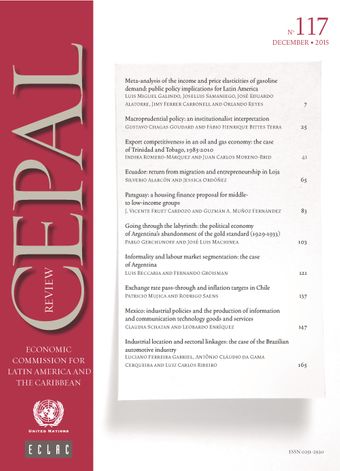-
Exchange rate pass-through and inflation targets in Chile
- Source: CEPAL Review, Volume 2015, Issue 117, Dec 2015, p. 137 - 146
- Spanish
-
- 08 Aug 2016
Abstract
Using quarterly data on the Chilean economy from 1986 to 2009, this article looks at the effect of gradual implementation of an inflation-targeting regime on exchange rate pass-through to prices. Initially, the introduction of inflation-targeting contributes to substantial reductions in the pass-through coefficient. However, in the second phase of implementation, once the monetary authority extends the policy horizon and introduces greater flexibility into the exchange rate system, the pass-through coefficient rises sharply. The findings of this study show that exchange rate pass-through to prices, in addition to being sensitive to the inflationary environment, is closely tied to the rules of the game that shape the monetary policy framework.
© United Nations





